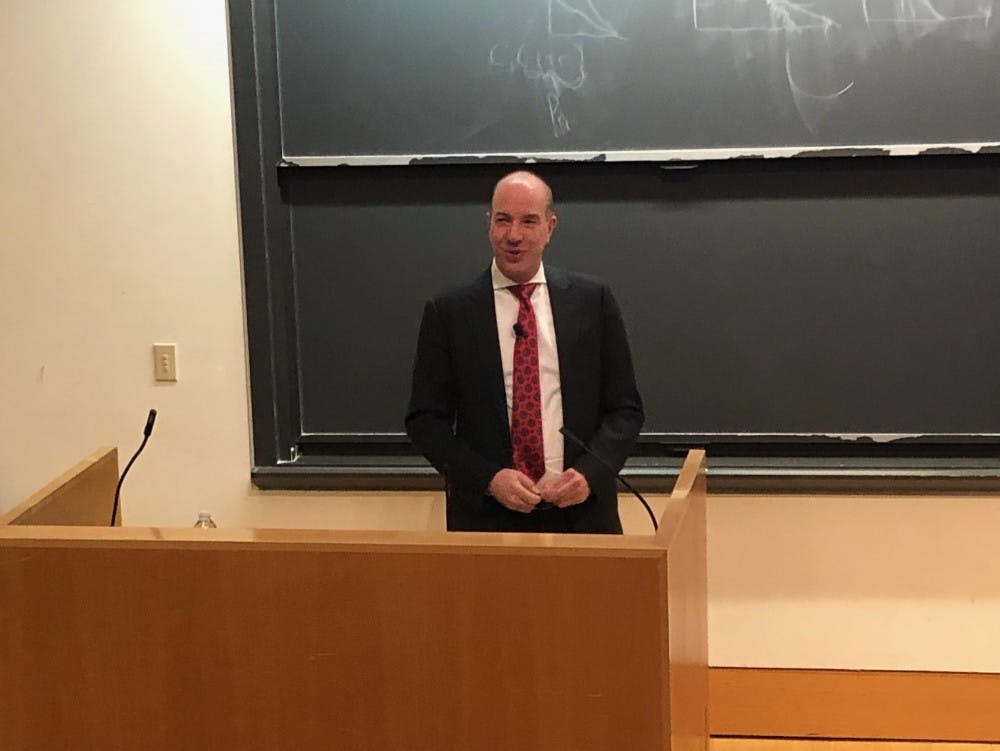President Donald Trump is not going away anytime soon, according to Anthony Romero ’87, executive director of the American Civil Liberties Union (ACLU).
In a lecture to a nearly full auditorium on Monday, March 4, Romero spoke about the efforts of the ACLU against the Trump administration and infringements on civil liberties as a whole.
Romero has served as the director of the ACLU since 2001, taking office a week before the Sept. 11, 2001 attacks. He is the first Latino and openly gay man to serve as the organization’s executive director. Eighteen years into his tenure, the ACLU has taken extensive legal action against the Trump administration.
Trump, however, is not the entire problem, according to Romero.
Although Trump “didn’t start the parade,” Romero said that Trump did jump forward to lead it. Romero noted that, regardless of whether Trump leaves office in two years or in six, he will have left a legacy and an impact that will endure indefinitely.
“The Trump presidency is a super fund of toxic waste on civil liberties and civil rights that will take us years to clean up,” he said.
Romero’s next words to the audience were those of encouragement, praising them for not losing hope, but rather tuning out the conflict and increasing their engagement with politics.
According to Romero, in the two years of Trump’s presidency, ACLU membership has grown from 400,000 to 1.875 million.
Romero also spoke about the different actions of the ACLU, dividing them into defensive and offensive categories. According to Romero, the major issue that the ACLU takes an offensive stance on is mass incarceration.
For instance, with the help of Kim Kardashian West and her attorney, the ACLU pursued the clemency case of Alice Marie Johnson.
In 1996, Johnson was given a life sentence for her involvement in a cocaine trafficking organization based in Memphis, Tennessee. On June 6, 2018, Trump commuted her sentence after a meeting with Kim Kardashian West. Johnson was subsequently released on parole.
Romero also said that the ACLU takes a defensive stance on three main “white hot issues:” immigrants’ rights, voting rights, and abortion rights.

The ACLU has filed 87 class action lawsuits on the behalf of families separated by the Trump administration’s zero-tolerance policy. They have helped to unite roughly 2,600 families out of the speculated 3,000. They are also concerned that several thousand more families were separated before the government made the policy known to the public.
Furthermore, in this past midterm election, the ACLU helped pass Proposition 4, a ballot referendum which gave 1.4 million individuals with past felony convictions the right to vote. Since the election of President Trump, 25 states have passed laws that make it harder to vote.
The ACLU also worked to keep Kentucky’s last abortion clinic open. Since 2010, states have enacted more than 400 restrictions on the right of a woman to obtain an abortion.
“Abortion rights are under assault by the very same people who feared the power of women when they first got the right to vote,” Romero said.
The lecture, titled “We The People: A Conversation with the ACLU’s Anthony Romero,” took place in Friend Center Room 101 on March 4.








